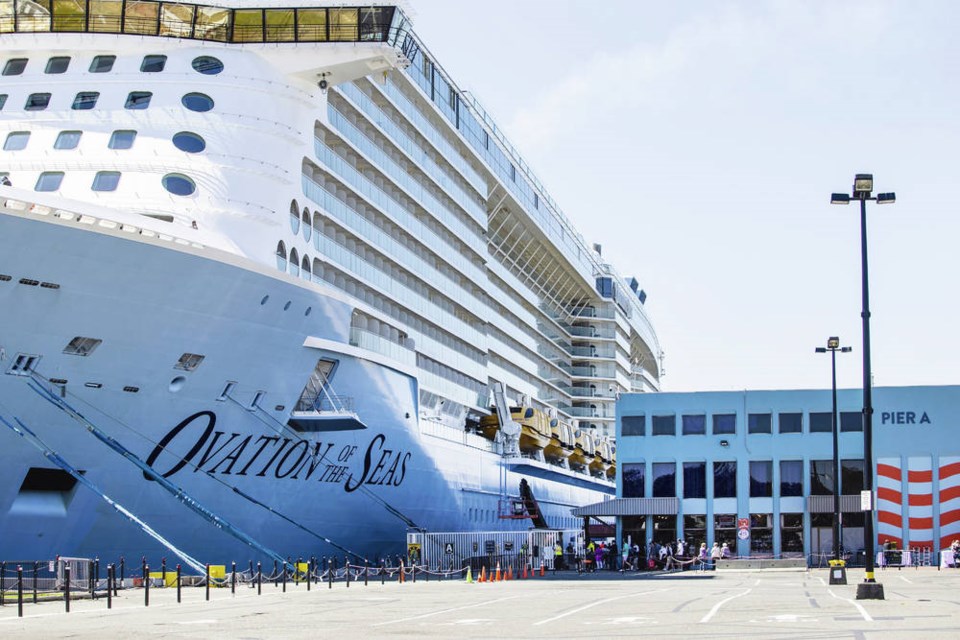After reassuring everyone the threat would never materialize, the B.C. cabinet on Tuesday called “all hands on deck” and is now trying to cope with it.
The lucrative Alaska cruise ship trade hangs in the balance, but B.C. is playing catch-up when it comes to staying on top of the issue. And in the long-term, it could turn from “issue” to “crisis,” based on rhetoric from the U.S. Senate.
If it does, Premier John Horgan’s record on the matter will look suspect.
Two Alaska senators stickhandled a major proposed change in U.S. sea law through the Senate last week. It’s a move to resurrect their tourism industry, which needs the ships even more badly than Victoria does.
It’s not law yet, but it’s a lot closer than Horgan and Tourism Minister Melanie Mark expected.
The U.S. requires all foreign-built, flagged or crewed ships (virtually all of them) operating from U.S. ports to stop at a foreign port before they can dock again in the U.S. The century-old measure is designed to protect U.S. shipbuilding.
That makes stops in Victoria, Vancouver or Prince Rupert mandatory on the hundreds of Seattle-Alaska cruise trips.
With those ports closed to them due to the pandemic, the Alaskans proposed a temporary amendment to let them sail past B.C. for the rest of the year.
The border closure was a no-brainer last year, but the senators are unhappy with how Canada extended the closure earlier this year for another full year — to February 2022 — with no consultation on the idea of resuming cruising with strict new safety measures.
When they moved the Alaska Tourism Recovery Act in March as a workaround, Mark brushed off concerns and appeared disengaged.
Even last week she was dismissive. “It hasn’t gone anywhere … the possibility of passing is very unlikely.”
Now it’s passed the Senate unanimously, the last thing the NDP cabinet expected. It still has to pass the House of Representatives and be signed by the president.
It’s an international matter between two federal governments, but B.C. is caught right in the middle and should be deeply engaged with Alaskans, Ottawa and anyone else in protecting the tourism industry.
There hasn’t been much sign of that so far.
It’s called a temporary measure, but one senator talked about erasing the foreign stopover requirement permanently. That could blow a big hole in B.C. tourism revenue.
Sen. Mike Lee said the foreign stopover requirement, which he dated back 130 years, means “we are shipping our tourism and economic activity abroad to other countries; we are destroying countless opportunities for our own coastal cities. … Instead of welcoming tourists and the dollars they spend … we drive them to Canada.”
If that thinking were to carry the day, the Victoria tourist season could look a lot different.
Cabinet ministers have now figuratively donned their lifejackets as Mark told the legislature: “All hands are on deck.”
She said cabinet ministers are actively discussing it with Ottawa counterparts and Horgan is meeting with the senators soon.
But Mark insisted it’s a temporary measure and called out critics in the legislature for “trying to drive home the narrative that it is going to be a permanent measure.
“We are going to welcome back tourists right to our ports, because we’re a magnet for the visitors all across the world.”
Horgan told reporters Tuesday he’s taking “great comfort” in the specific mention of temporary in the legislation.
B.C. was taking great comfort earlier that the bypassing of Canadian ports idea didn’t have a chance, but that has clearly changed.
It isn’t just Opposition critics worried about a permanent change; some travel industry leaders are concerned as well.
It won’t happen soon. One of the senators stressed it’s a temporary fix and “our long-term goal is to keep the system of mutually-beneficial tourism … intact.”
The more immediate problem for B.C. is to figure out whether it wants the ports opened. Horgan said the vast majority want the border to stay closed until it’s safe. The resumption of cruise ship stops isn’t going to happen in the next number of weeks, he said.
In the mean time, he defers all questions in the house on the issue to Mark, who considers them all fear-mongering and alarmist.



